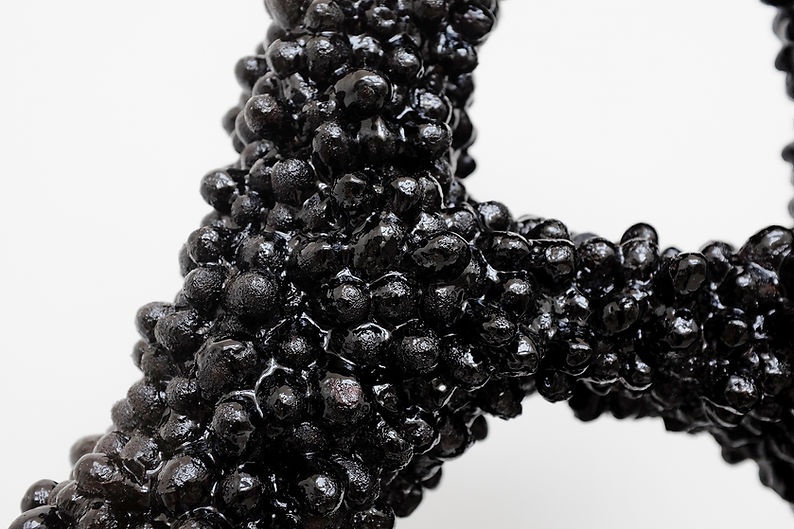
COCOON is looking at new ways of using silkworm’s cocoons without killing the worm generally killed in the silk production. The silkworm is one of the most iconic insect experiencing a morphosis during his entire evolution. He is born as a worm but then morph in a butterfly arrived at maturation. Within the silk industry most of the Bombyx Mori are killed in order to extract the silk from the cocoon, what if we let the worm become a butterfly?How can we use this material differently and celebrate the morphosis of the insects?The piece has been made by an accumulation of thousands of silkworm’s cocoons and are then varnished with a thin layer of a natural honeybee bio resin. The slow process of the making of the piece underline the beauty of the insect world and defend a slow process in the making of those alien look pieces.
Cocoon Wardrobe - 170x95x65cm -silkworm's cocoons, honeybee bio resin, oak base, 2017, unique piece.

Cocoon Cabinet #5 - 110x50x50cm -silkworm's cocoons, honeybee bio resin, oak base, 2017, unique piece.

Cocoon collection at Chamber Gallery - New York

Cocoon Cabinet #1 - 130x80x33cm -

Cocoon Cabinet #2 -
72x40x60cm -silkworm's cocoons, honeybee bio resin, 2017, unique piece.


©Thomas Chene

Commissioned by the Victoria and Albert Museum for the Digital Design Weekend at the London Design Festival 2017.

Cocoon Cabinet #4 - 140x100x64cm -silkworm's cocoons, honeybee bio resin, 2017, unique piece.
